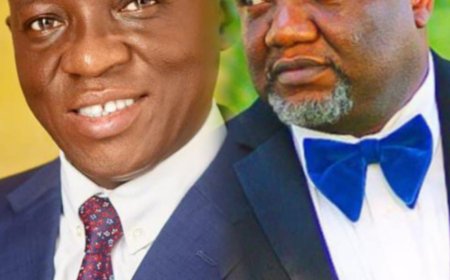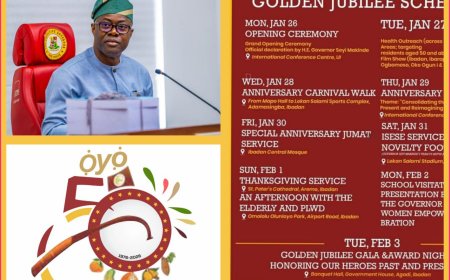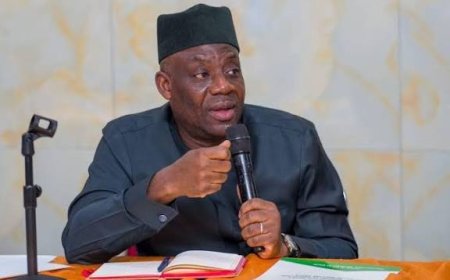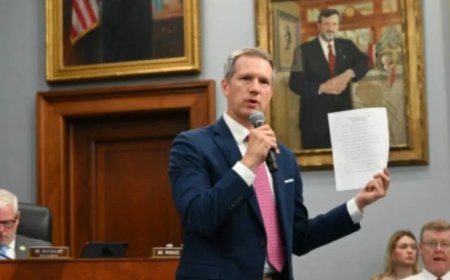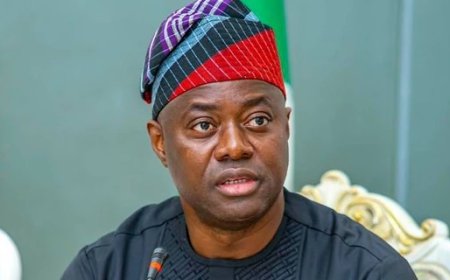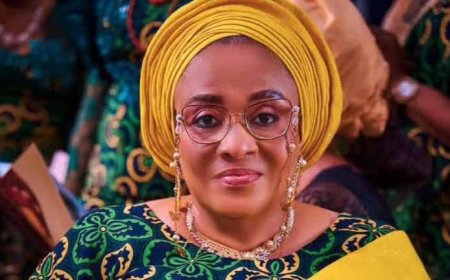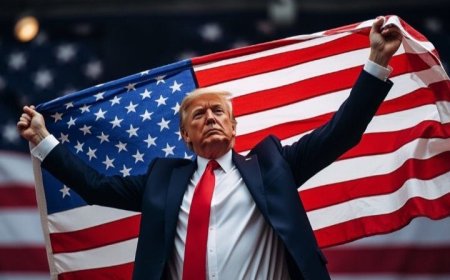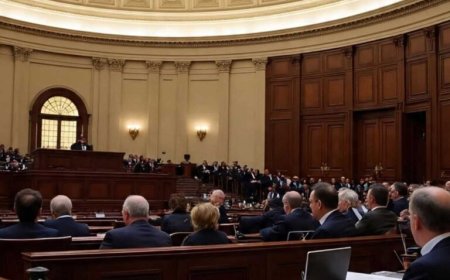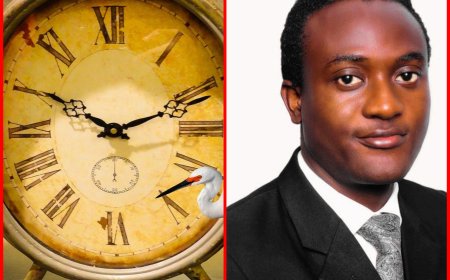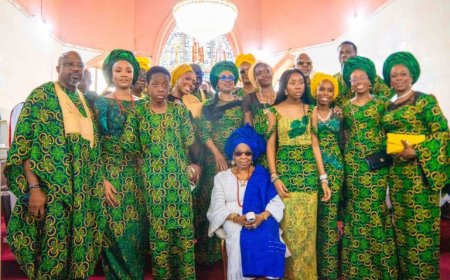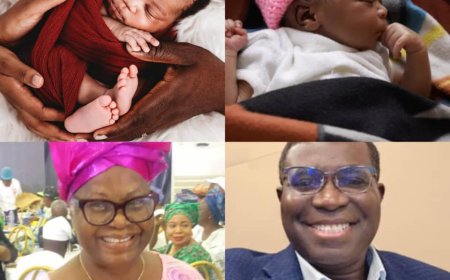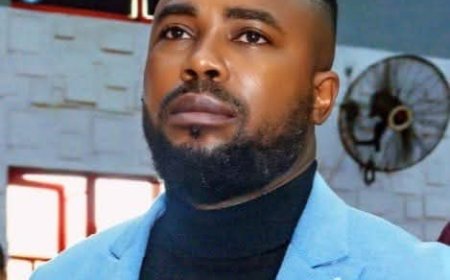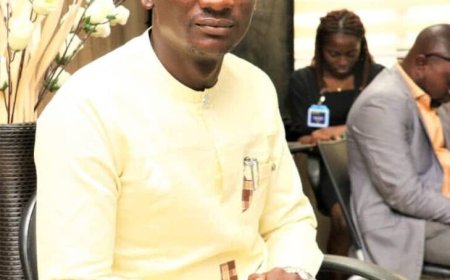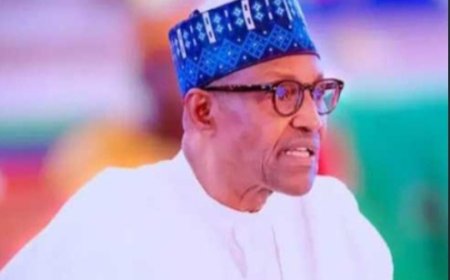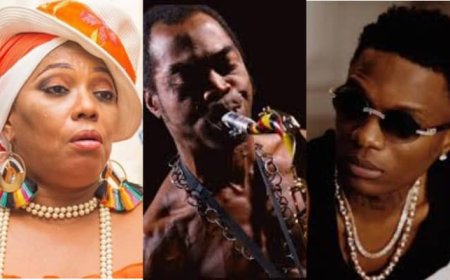Legacy Beyond the Grave: A Truthful Tribute to General Buhari
"History is not a mourner. It is a recorder. It writes what it sees, not what it is told. And what it saw in Buhari’s years of leadership was.... "In this Opinion article, a Nigerian citizen, Idowu Ephraim Faleye pens a truthful tribute to former Nigerian President, General Muhammadu Buhari.
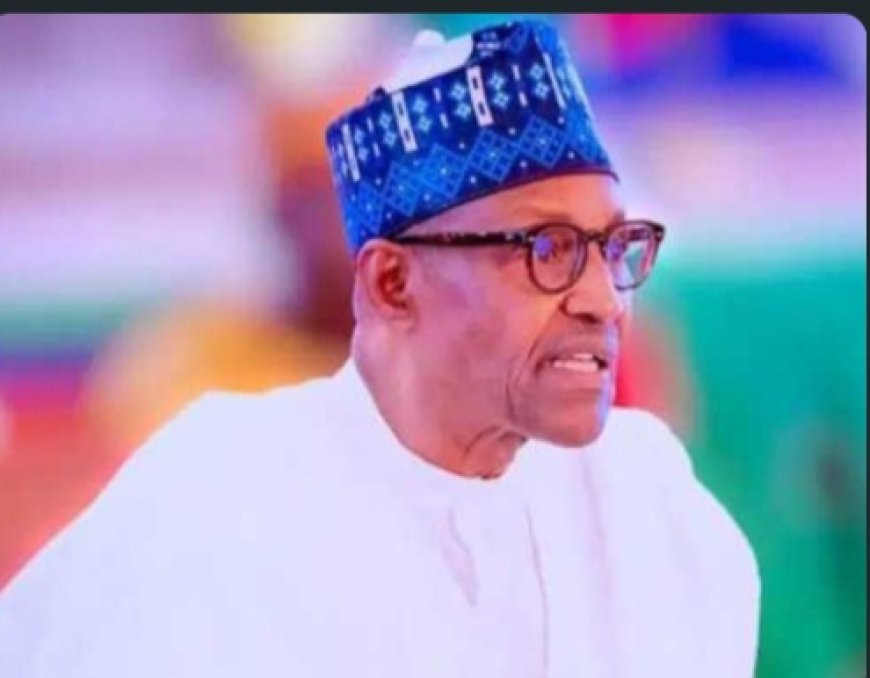
By Idowu Ephraim Faleye
When a man departs from this world, the air is often filled with eulogies, praises, and flowery words crafted to erase the bitter truths that followed him in life. General Muhammadu Buhari, the immediate past president of Nigeria, has now joined the ancestors. As expected, the news of his death will stir many emotions, both from those who adored him and from those who bore the weight of his leadership failures. But this is not the time to pretend or massage history with half-truths. The grave may hold his remains, but it cannot bury the consequences of his leadership. Even in silence, history remains stubborn. It remembers. And it judges with a clarity that even time cannot erase.
Many Nigerians once believed in him. When he emerged in 2015, millions saw a messiah. He was presented as a man of integrity, a no-nonsense general who would sanitize the rot in the system. He came with the image of a disciplined soldier and a reformed democrat. He made bold promises to fight corruption, to secure the country, and to fix the economy. His supporters described him as “Mai Gaskiya”—the man of truth. For a nation bleeding from years of looting and betrayal, Buhari seemed like a final hope.
But hope is a fragile thing. It dies slowly when trust is broken and dreams fade. The Buhari who governed Nigeria was not the one Nigerians imagined. Very early into his presidency, it became obvious that all was not well. The man was frail. He disappeared frequently for medical treatment abroad. For months, he would be gone, leaving the nation in a state of confusion and speculation. His health challenges, though understandable from a human standpoint, became a national crisis. The office of the president became too heavy for a man who could no longer bear its responsibilities.
As the man grew weaker, a different government emerged—one not elected by the people but assembled from the shadows. A kitchen cabinet, a clique of close allies and power mongers, seized control of the nation. They moved with impunity, shielded by the absence of a strong leader. Corruption, the very thing Buhari swore to fight, grew bold again. Scandals broke out like wildfires. From the mismanagement of COVID-19 funds to the shocking revelations at the Niger Delta Development Commission, to the secrecy around petroleum subsidies, it became clear that the same looting and recklessness Nigerians thought they had buried had only changed hands.
There was no explanation. No apology. No accountability. Nigerians watched helplessly as public institutions weakened. Those who spoke out were called enemies of the state. The culture of fear that democracy once tamed began to return.
Beyond his absence and the captured presidency, Buhari also left behind deep wounds of division. He ruled Nigeria through the lens of ethnicity and religion. He defended herders during attacks. He looked away when his ethnic kinsmen were implicated in violent killings across the Middle Belt and southern Nigeria. His silence during national tragedies was loud. It told Nigerians that some lives mattered more than others.
As his tenure neared its end, Buhari’s actions once again confirmed the fears of many who had long suspected that his loyalty was more to his ethnic identity than to national unity. Rather than uphold the unwritten but widely respected principle of rotational presidency, which helps maintain balance in Nigeria’s fragile federation, he showed clear preference for a fellow Fulani man as his successor during the ruling party’s presidential primaries. This move, viewed by many as a deliberate attempt to retain power within his ethnic group, deepened the sense of marginalization felt by other regions. It was not just a political miscalculation but a final, glaring reminder of his tribal jingoism, exposing a man who, even at the twilight of his presidency, could not rise above sectional interests for the sake of national cohesion.
A president who should have united a diverse nation became a symbol of sectional loyalty. His body language empowered ethnic militias. His silence emboldened terrorists. Under his watch, Boko Haram expanded its territory. Bandits turned highways into hunting grounds. Kidnappings became a daily horror. From Zamfara to Kaduna, from Niger to Benue, blood flowed freely. Yet, the man many saw as a former military general failed to act like one.
In the economy, things went from bad to worse. Inflation soared. The naira collapsed as a result of arbitrary printing of currency. Over 30 trillions were printed. Jobs disappeared. The suffering of the masses became unbearable. The promise of lifting millions out of poverty became a cruel joke. People were not just poor—they were angry, hopeless, and abandoned. The streets told the story of Buhari’s presidency better than any official statement. The people were not living; they were merely surviving.
It is true that no leader can solve all problems. But Buhari had the rare gift of goodwill. Nigerians were patient with him. They defended him. They endured hardship because they believed he was sincere. But sincerity without capacity is a dangerous thing. It blinds a nation to warning signs. And when reality finally hits, it leaves deeper scars than betrayal. Buhari’s presidency is a case study in how not to govern a complex country like Nigeria.
Today, he is no more. And many will say we should not speak ill of the dead. But history is not a mourner. It is a recorder. It writes what it sees, not what it is told. And what it saw in Buhari’s years of leadership was a nation mismanaged and betrayed—not necessarily out of wickedness, but out of a tragic combination of incapacitation, silence, and misplaced trust in men who did not mean well for the country.
He may not have set out to fail. But the truth is, his leadership failed Nigeria. The very things he stood against—corruption, nepotism, insecurity—flourished under his watch. He entered office as a national symbol and left as a regional figure. He had the chance to be a father to the nation, but he governed like a tribal elder. And while his supporters will try to defend him, the evidence is too glaring to be erased.
Time will go on. New leaders will emerge. New crises will come. But the legacy of General Muhammadu Buhari will remain a reminder of what happens when power is placed in the hands of the wrong people. It will be taught in schools, debated in parliaments, and remembered by those who lived through it. His death may silence him, but it cannot silence the pain of those who suffered under his presidency.
Even graves no longer provide succour for human role while living. Buhari is gone, but the consequences of his leadership are still here with us. The damage is not just in numbers; it is in broken institutions, wounded citizens, and a generation of young Nigerians who no longer believe in their country. That is a heavy legacy to carry.
I have not written this as enemies. I'm writing as witnesses—people who lived through the days when hope turned into hardship. People who believed, waited, and wept. We watched the nation we love crumble under the weight of indifference and incompetence. And we say this, not with joy, but with sorrow: the grave does not wash away guilt.
Rest on, General! You have done your part. History will do the rest.
*Idowu Ephraim Faleye writes from Ado-Ekiti +2348132100608*
What's Your Reaction?










